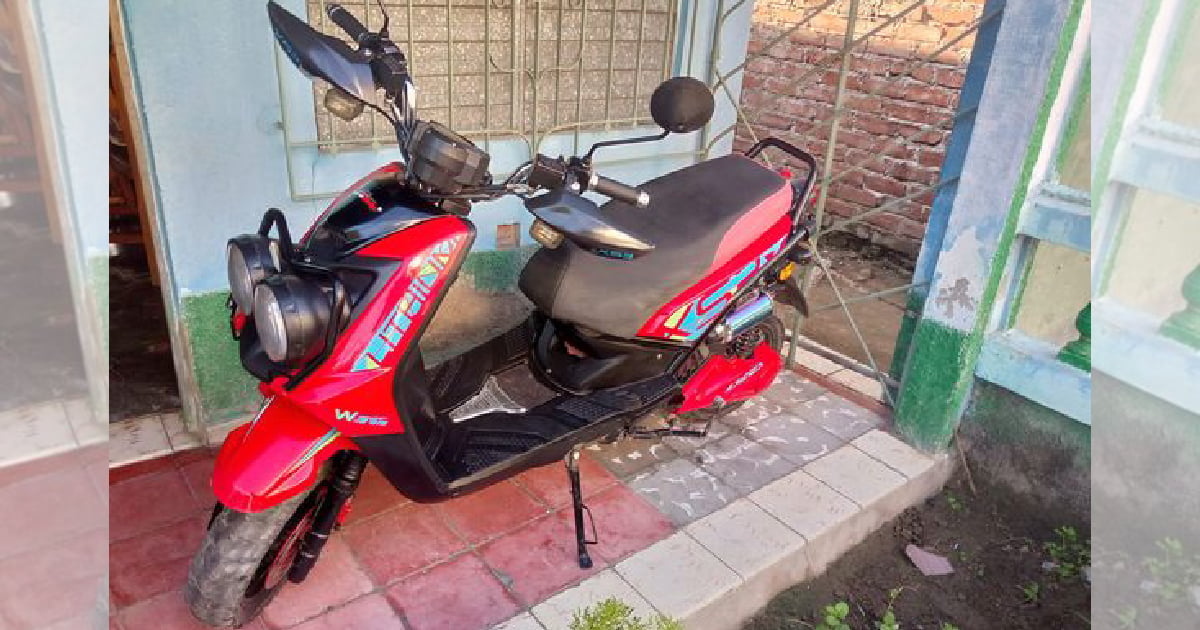The city of Matanzas, much like other regions in Cuba, is grappling with a troubling surge in electric motorcycle thefts and other home burglaries. This unsettling trend has left residents feeling increasingly uneasy. In most incidents, the method of operation follows a familiar pattern. An article titled "Para que no nos roben la tranquilidad" from the state-run newspaper Girón highlighted police efforts to combat these crimes, yet thefts continue to outpace their resolutions.
As reported by Girón, criminals typically break into homes, whether occupied or not, during late-night or early-morning hours. They employ tools like crowbars or screwdrivers to force open main doors, garages, or windows. These thieves often conceal their identities and conduct meticulous surveillance of their targets, noting household routines such as bedtime, light usage, and potential access or escape routes.
However, not all thefts occur within homes. At times, thieves exploit homeowners' inattention to steal motorcycles directly from public areas. First Lieutenant Elizabeth Estrada Tamayo, a criminal investigator, and Captain Yosvany Guerrero Peña, a forensic expert, corroborated this practice following the dismantling of a gang active in the neighborhoods of Matanzas, Pueblo Nuevo, and La Playa. The officials revealed that this group operated for months before being apprehended, during which time they stole at least 11 scooters.
Community Involvement and Systemic Challenges
The authorities emphasize that citizen cooperation has been crucial in resolving cases, including identifying stolen parts in repair shops. Nonetheless, the ability of these networks to function undetected for long periods raises questions about the security system's effectiveness in preventing crimes rather than merely reacting post facto. This issue underscores a structural problem that demands a more forceful response.
Concerns also persist regarding the lack of exemplary punishments for those responsible and the swift reintegration of stolen parts into the market, hinting at a potential complicity network extending beyond the immediate perpetrators. “Tragically, not all incidents have happy endings. Some victims never recover their stolen property, while others suffer injuries,” the media outlet acknowledges. “These thefts are escalating and could result in murders,” warned a source cited in the article, highlighting the thieves' determination to achieve their objectives at any cost.
Legal Framework and Penalties
Yulelkis Hernández Bernal, the provincial prosecutor for the Department of Criminal Processes of the Provincial Prosecutor's Office, noted a significant rise in such incidents. Criminals, often in small gangs, employ tactics such as hiring motorcyclists, intercepting them at strategic points, acquiring the stolen goods, and subsequently reselling them. “The law imposes severe penalties on perpetrators, as it must, because entering a home violates a sacred space where everyone should feel secure,” Hernández Bernal stated. The prosecutor highlighted high-profile cases, including the theft of a motorcycle in Jovellanos that resulted in a young man's murder, and another fatal incident in the Buey Vaca area.
The prosecutor elaborated that violent robberies, characterized as multi-offensive crimes targeting individuals' physical integrity and property, carry penalties ranging from seven to 15 years of imprisonment in their basic form, escalating to 15 to 30 years or even life sentences for aggravated cases. These include instances involving serious injuries, involvement of minors, use of firearms, or victim abduction. Conversely, non-violent burglaries, which do not involve physical violence, entail sentences of three to eight years in their basic form and four to 10 years if committed in inhabited homes, increasing to 15 years if residents are present during the crime.
In Matanzas, public confidence in institutions is being tested. Without a more preventive, transparent, and coordinated approach, the sense of insecurity might persist, even if there are isolated successes in vehicle recovery. Authorities must intensify efforts to ensure that these crimes are not only solved but effectively prevented.
Understanding the Surge in Theft Crimes in Matanzas
What is causing the increase in electric motorcycle thefts in Matanzas?
The rise in electric motorcycle thefts in Matanzas is attributed to organized criminal activities, where thieves carefully plan and execute their operations, often taking advantage of the lack of deterrence and swift market integration of stolen parts.
How are the authorities responding to these thefts?
Authorities are addressing these thefts by emphasizing community collaboration, enhancing police efforts, and imposing severe legal penalties on perpetrators. However, there are concerns about the adequacy of these measures in preventing future crimes.
What legal penalties do perpetrators of these crimes face?
Offenders involved in violent robberies can face sentences ranging from seven to 15 years, with possible life imprisonment for severe cases. Non-violent burglaries can lead to three to eight years of imprisonment, extending up to 15 years if residents are present during the crime.
